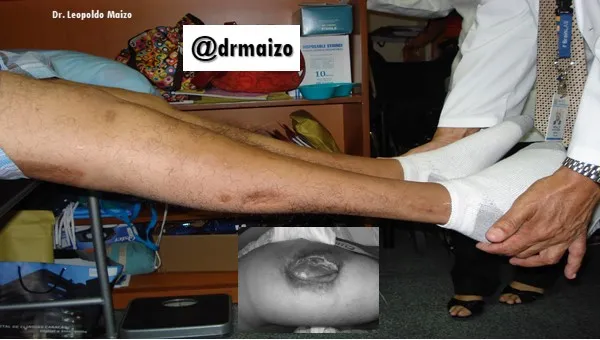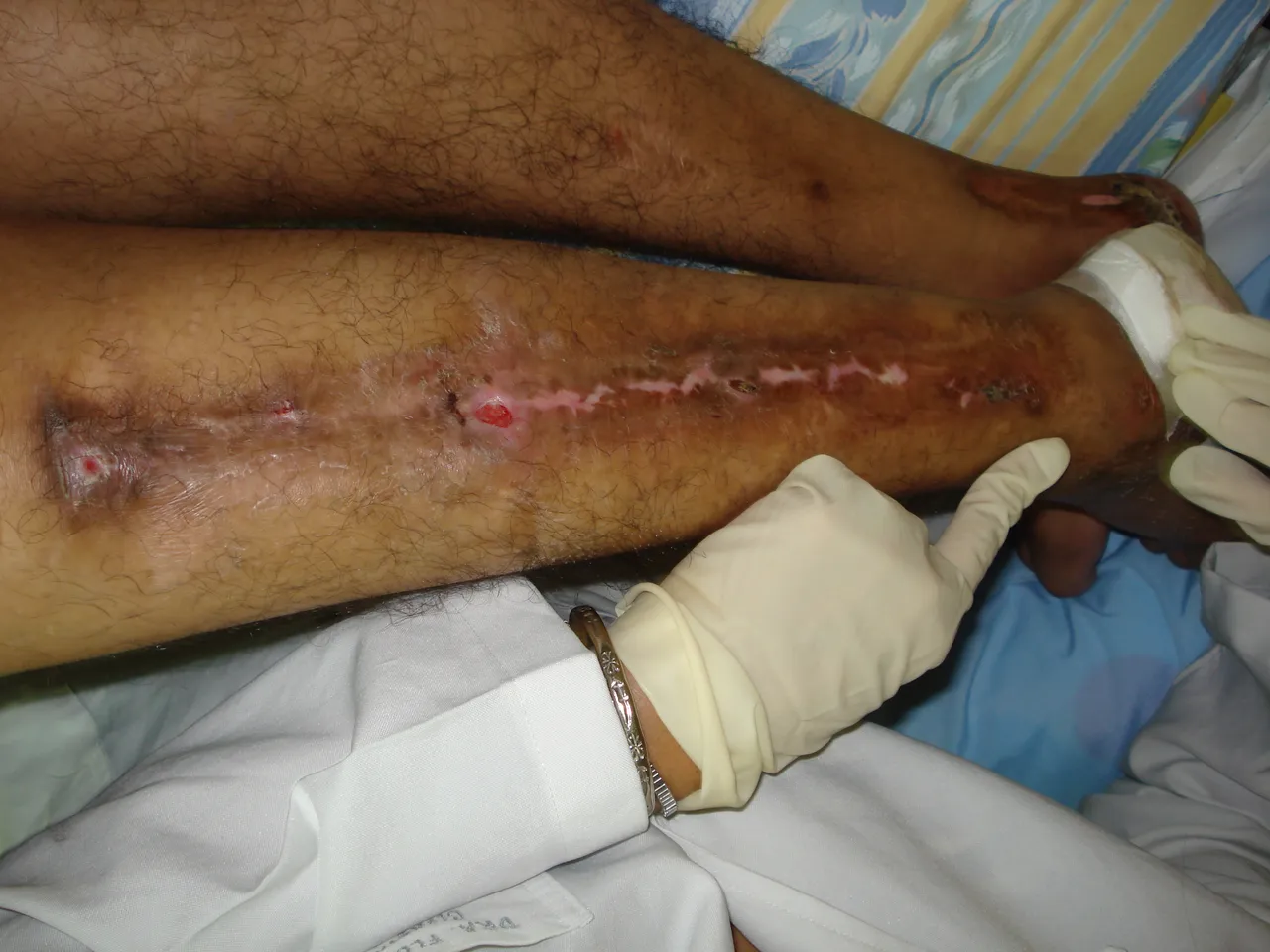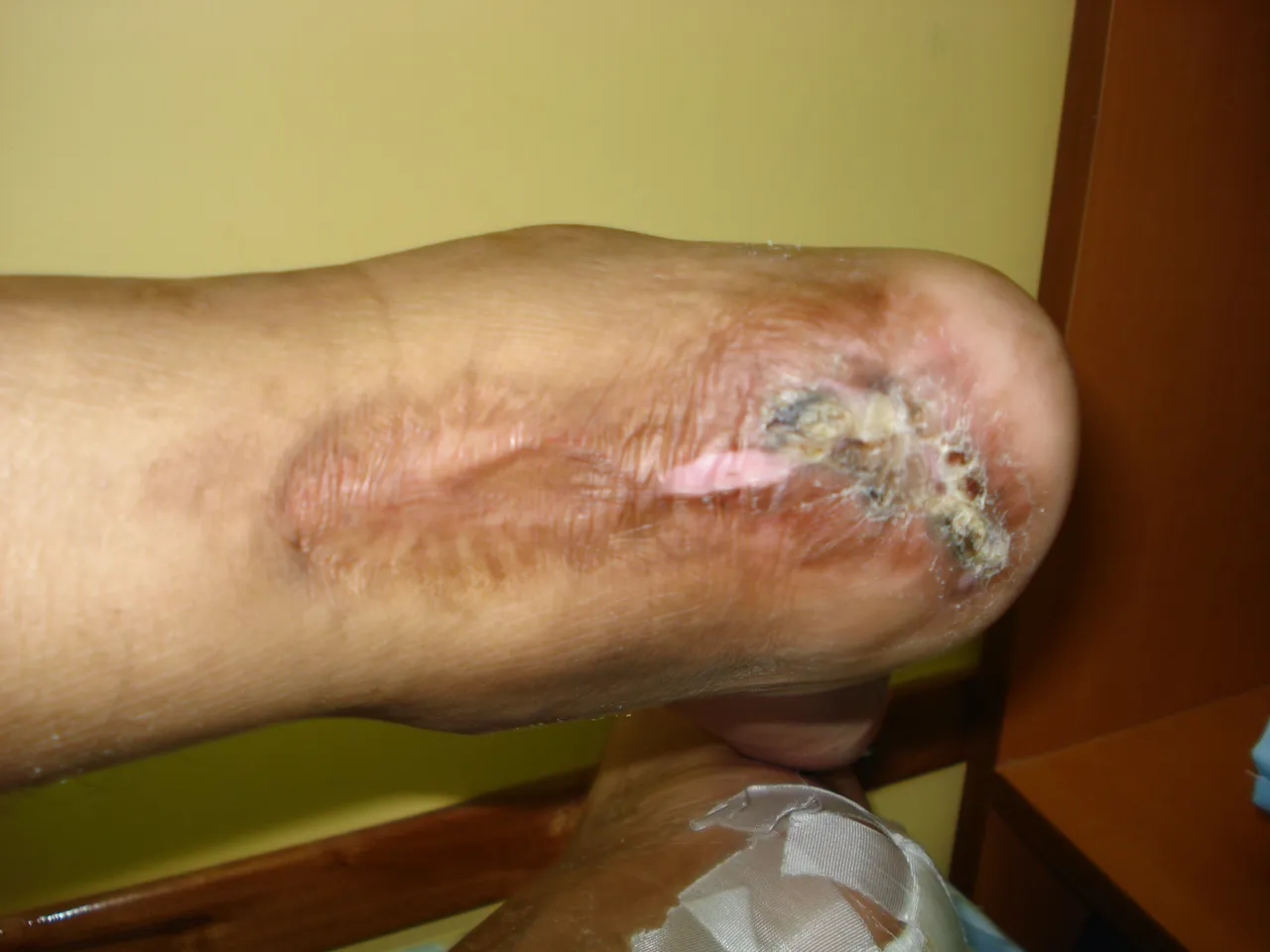
Skin Ulcers
Pressure ulcers, or "bedsores," are lesions of the skin and the tissue beneath it that occur as a result of prolonged pressure on the skin. In most cases, pressure ulcers occur on the skin covering bony parts of the body, such as the heels, ankles, hips, and tailbone.
People most at risk for pressure ulcers are those with a condition that limits their ability to change position or those who spend most of their time in a bed or chair.
Pressure ulcers can appear quickly. Most ulcers are cured with treatment, but some are never completely cured. You can take steps to help prevent and cure pressure sores.


Causes
Pressure ulcers are caused by pressure against the skin that limits blood flow to it. Other factors related to limited mobility can make the skin vulnerable to damage and contribute to the development of pressure ulcers.
Constant pressure anywhere in the body can decrease blood flow to tissues. Blood flow is essential for transporting oxygen and other nutrients to tissues. Without these essential nutrients, nearby skin and tissues are damaged and, over time, can die.
Friction occurs when the skin rubs against clothing or bedding. Friction can make fragile skin more vulnerable to injury, especially if the skin is also moist. Friction occurs when two surfaces move in the opposite direction. For example, when the head of a bed is elevated, you can slide down on the bed. As the coccyx moves downward, the skin over the bone can remain in the same place, basically pulling in the opposite direction.


Prevention and Treatment
The medical treatment is meticulous and must be carried out by means of the cures of the wounds with special apositos according to the severity of these. It is important to always be advised by the treating physician on the ideal treatment as all tend to be treated differently.
You can help prevent pressure ulcers by frequently changing position to avoid tension on the skin. Other strategies include good skin care, good nutrition and fluid intake, smoking cessation, stress management and daily exercise.
Keep skin clean and dry. Wash your skin with a mild cleanser and pat dry. Perform this routine cleaning on a regular basis to limit skin exposure to moisture, urine, and feces.
Protects the skin. Use pure talcum powder to protect the skin at friction points. Apply a lotion to dry skin. Change clothes and replace sheets frequently, if necessary. Pay attention to buttons on clothing and wrinkles on sheets that may irritate the skin.
Inspect your skin daily. Examine the skin daily and closely for signs of decubitus ulcers.
Dr. Leopoldo Maizo - Orthopedic Surgeon


Firma diseñada por @themonkeyzuelans, contáctalos vía Discord "themonkeyzuelans#9087"
Great projects from the Steemit community:
- My Fundition campaign: https://fundition.io/#!/@drmaizo/6f88ggj8h



